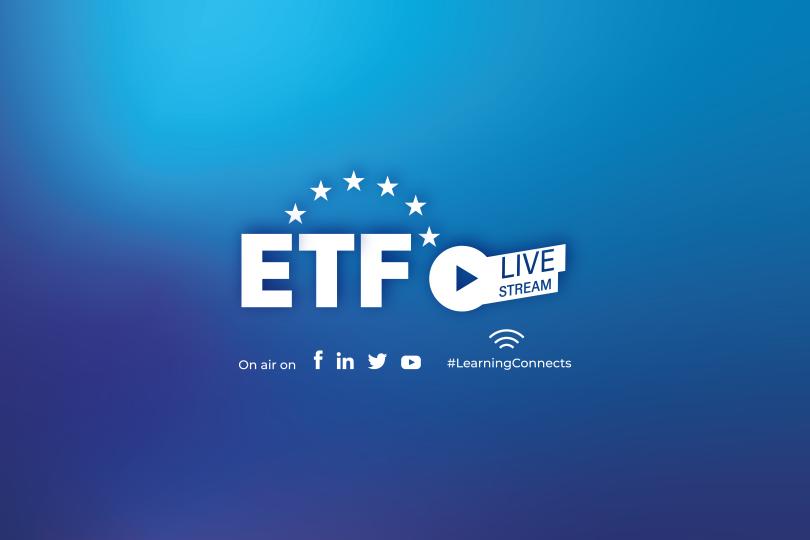
Career advice: for a lifetime
Career guidance helps people access resources, further education and training, but it can also reduce inequalities, participants in the European Training Foundation’s (ETF’s) online event “Career guidance: why does it matter?” heard on Monday, 28 November.
The panel’s guest speakers Matteo Morgandi, World Bank; Glenda Quintini, Organization for Economic Cooperation and Development (OECD); and Florian Kadletz, Human Capital Expert at the ETF, were joined by around 200 listeners from countries such as Tunisia, Germany, Bangladesh, Ireland, Malaysia, and Nepal.
Career advice can help people manage their work over their entire lives, which is why this year’s Global Careers Month seeks to raise awareness about its importance.
“But why focus on it now?” asked the ETF’s Maria Lvova Zolotarevskaya, who was moderating the event.
The need for professional guidance
“Rapid changes in the way that work is being organized, the digital and green transitions, economic crises and the pandemic have all had a major impact on the labour market and presented new obstacles for individuals,” responded Quintini.
Kadletz agreed that careers guidance is getting more attention now because of these changes. “We have a ‘new normal’,” he said, “and we need to help people in these times of transition.”
People have often relied on parents and friends for advice, but this system benefitted those from wealthier backgrounds more, and these ‘mentors’ also often lacked technical expertise.
“Adults and informal contacts are important, but we need professionals who are regularly updated about changes in the labour market,” said Quintini. “OECD research has shown that professional career guidance improves the likelihood of people finding a job.”
Wrong choices have a cost
Professional service providers can better match skills with market demand, but it requires resources.
“In a rapidly changing world of work, investment is needed,” said Kadletz. “Money goes to public employment services and schools, but it is insufficient, because if we are to reach underpriviliged groups we need to do outreach.”
“Career guidance is an essential public good and needs funding,” agreed Morgandi. “Policies need to be co-owned by the education and labour ministries, but also finance; all stakeholders need to be involved.”
Quintini added that there are a lot of people who are over-qualified or mismatched in jobs, such as psychology graduates working as receptionists, and this has both a negative impact on wages and on work satisfaction.
“Wrong choices also have a cost,” said Morgandi.
Work guidance in kindergarten?
Lvova’s next question, about how early career guidance should start, provoked lively debate.
For Morgandi, the answer is when decisions start to be made about education. “It needs to be included in the curriculum,” he said. “I am shocked how many students and teachers are unaware about what resources are available. You need to know that before leaving school, so you can access them later.”
Kadletz agreed, saying that career-handling skills can be more important than knowledge. “Being able to write your CV is not going to help you survive; you need life skills and career management to help you make these decisions.”
“In Poland this process starts in kindergarten, with the help of organizations like CEDEFOP (the European Centre for the Development of Vocational Training)”, he said. “But good examples can also be found in Armenia and Albania.”
International good practice
More innovative examples from around the world were offered when Lvova asked about the importance of career guidance in times of crises and technological change.
“Many get jobs through parents and informal contacts,” replied Kadletz. “We can learn a lot from countries like India in this respect, as they have a very good approach.”
Kazakhstan have an online portal called the Atlas of New Professions, (https://www.enbek.kz/atlas/en) which provides great insights for individuals, career guidance officers and policy makers, continued Kadletz.
“In Eastern Europe and the Western Balkans digitalization has helped bring services together in one website, and this can be replicated in other countries,” he said. “It doesn’t solve all the problems – no single actor can – but it can be cost-effective and overcome fragmentation.”
The role of employers
Turning to employers, the panel felt they were well-placed to identify training gaps and assess changing skill requirements.
“Japan has a culture in which people stay in jobs their whole lifetime, and the government provides companies with tools to give career and training advice to workers within that context,” said Quintini.
Employers can offer a unique perspective, but it is important that trade unions also have a role. “Career management skills means having a critical understanding about issues such as labour rights,” said Kadletz, “but we also need to remember that union members are well-placed to talk about real-life experiences, such as what it is like to be a carpenter or a hospital worker.”
‘What advice would you give to young people?’ asked Lvova, to conclude.
“Research, research, research…” responded Kadletz, “and talk to professionals; not just friends.”
Morgandi agreed, but suggested talking to people at the end of a process, such as school, as they are more likely to give informed opinions.
“I encourage my children to choose STEM subjects, like science and maths, because that will always serve them well,” Quintini said. “That is my more practical answer!”
To see the full conversation:
Did you like this article? If you would like to be notified when new content like this is published, subscribe to receive our email alerts.